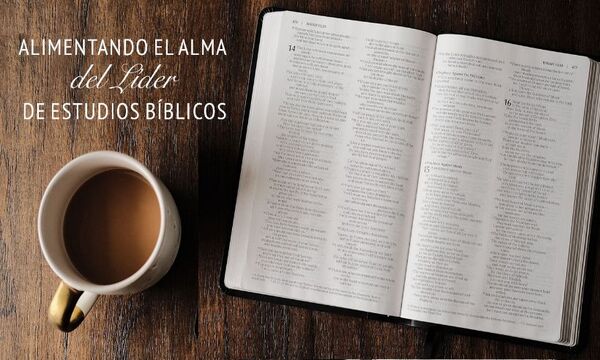In our day, wherever it is found, the fruits of intellectual inquiry grow from the conviction that there is such a thing as truth out there to discover. Take an axe to the existence of truth and you no longer have education, you have propaganda. Ideologies that deny the very possibility of truth can be found in many (thankfully, not all) fields of education. In the quip of postmodern philosopher, Richard Rorty, truth is simply a matter of whatever your colleagues will let you get away with saying.[i] With no truth to seek and discover, we are left with only social constructs to endlessly dream up and deconstruct. In the words of one lamenting Harvard graduate, “The freedom of our day is the freedom to devote ourselves to any values we please, on the mere condition that we do not believe them to be true.”[ii] When the very idea of truth is considered so out-of-fashion, schools gradually turn from the pursuit of knowledge to the business of data transfer, indoctrination, and diploma-printing.
This creates a conundrum in higher education: Students file into classrooms seeking knowledge only to be told in so many sophisticated terms that there is no truth to be known. Expecting future generations to take their intellectual lives seriously while teaching them that there are no truths, only constructs, is like teaching courses in animal mythology and expecting students to pursue careers as Unicorn and Pegasus veterinarians. To those cynical members of the intelligentsia and the students under their influence, Jesus offers something beautiful. He brings the melody to education.
What do I mean when I say that Jesus brings the melody to education? Consider Handel’s famous oratorio, Messiah. One way to understand Messiah is as nothing more than 794,342 black dots on white paper. This would be to understand what Handel’s oratorio is made of. But something is missing if we leave out why Handel composed Messiah, what it is made for. So we are not left guessing, Handel inked the letters S.D.G. (Soli Deo Gloria, that is, “For God’s Glory Alone”) at the bottom of the final score. We fail to appreciate this sonic masterpiece as what it really is if we fail to hear the millions of sound waves all moving toward the same ultimate goal—worship.
A famous author recounts the first time he tapped into the meaning of Handel’s Messiah at a London symphony: “I felt able to see beyond the music to the soul of the piece … All of it centered on the Messiah who came on a rescue mission, who died on that mission, and who wrought from that death the salvation of the world.”[iii] To understand the cosmos as merely particles expanding in a vacuum or a human being as a bipedal primate is to understand the universe and people without really understanding the universe and people. We miss “the soul of the piece.” When we realize who it’s all for, then the tumblers fall into place, the door of knowledge swings open, and we join in the Hallelujah chorus.
There were times in the history of education that pursuing knowledge was to join in the Hallelujah chorus. At the founding of the first universities there was a unity underneath the diverse fields of study, a unity captured in the words of Harvard’s 1650 motto, “In Christi Gloriam,” (“For the glory of Christ”). Christ was the melody on top of which every discipline could add its distinctive harmonies, making the university itself a kind of symphony of knowledge. Modern universities, however, function more as mere “versities.” The unity has been lost. Without a shared telos or purpose behind truth in different fields, there is little reason to expect any harmonious picture of reality to emerge.[iv] Knowledge is then no longer like an inspiring Handel symphony, with unifying themes unfolding in layered harmonies. It becomes instead a disconnected John Cage cacophony. No key. No melody. No meaning.
This lack of a unifying telos under every field of knowledge tends to produce what John Updike called, “brains no longer conditioned for reverence and awe.” It churns out the kind of specialists who, as the saying goes, know more and more about less and less until they eventually know everything about nothing.
Contrast this with the Jesus of Scripture. Paul tells us that all things exist “for him.”[v] Jesus is the Telos, the melody and meaning of all true education.[vi] He can turn slackers and specialists into Renaissance men and women, wide-eyed truth-seekers who sing with the Psalmist, “How precious to me are your thoughts, O God! How vast is the sum of them!”[vii] Every “logy” in its truest form—cosmology, psychology, biology, etc.—becomes a branch growing from the living trunk of Christology. All truth becomes Christ’s truth. Education becomes an act of worship, like Handel’s Messiah.
This article is adapted from Thaddeus J. Williams’ new book, REFLECT: Becoming Yourself by Mirroring the Greatest Person in History (Weaver, 2017), which explores how to mirror the intellect, emotion, holiness, love, grace, creativity, and power of Jesus in our current cultural moment. Click here to read endorsements and pick up your copy of REFLECT.
[i] Richard Rorty, Philosophy and the Mirror of Nature, (Princeton, NJ: Princeton University Press, 1979) 176. If Rorty’s colleagues would not let him get away with his sophistic view of truth (and many didn’t) does his view, therefore, cease to be true?
[ii] Finding God at Harvard: Spiritual Journeys of Thinking Christians, Ed. Kelly Monroe, (Grand Rapids, MI: Zondervan, 1996) 17.
[iii] Philip Yancey, The Bible Jesus Read, (Grand Rapids, MI: Zondervan, 1999) 214, 219.
[iv] As Colin Gunton notes, “the realms od science, ethics, and art are understood in radically different ways and that the very possibility of a universe of meaning, a world and experience making overall unified sense, is lost to view… There is modern fragmentation in a nutshell.” He then points to the Christian alternative in which “It is not therefore something which holds things together, but someone” (The One, The Three, and the Many: God, Creation and the Culture of Modernity, [Cambridge University Press, 1993] 115-116, 178).
[v] Colossians 1:16.
[vi] On Jesus as Telos of all things, see also Romans 10:4; 11:36; Ephesians 1:10; and Revelation 22:13.
[vii] Psalm 139:17.
 Biola University
Biola University
.jpg)


.jpg)